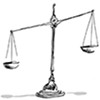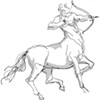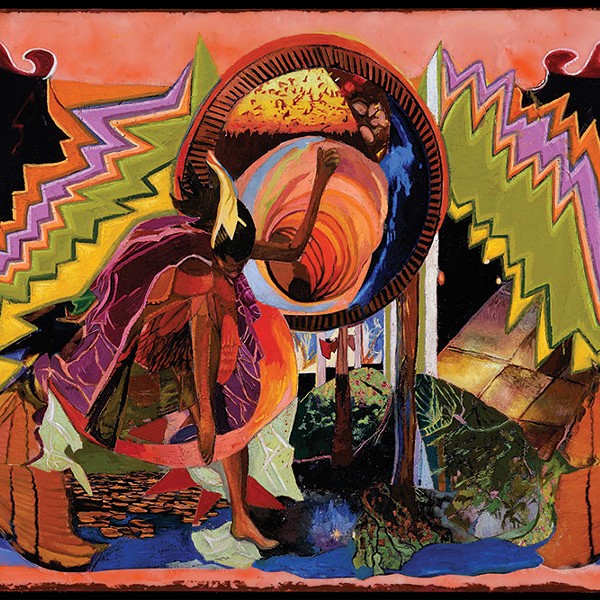There's a question going around: How do we convey the social unrest in our nascent era of protest into a sustained movement? Both the United States and the world have a lot of problems that need addressing—and it would seem the powers that be are not so interested. It's up to us. I want to take this up as a spiritual question: that is, as a question of the inner life.
When I was studying 20th-century women poets in graduate school at Rutgers, I was introduced to the idea from the Redstockings feminist collective that "the personal is political." In the same class, I learned that poet and essayist Adrienne Rich (1929-2012) expanded this into the idea that there's no private life that is not in some way dictated by the wider public life that surrounds us. For feminists and for all who are seeking liberation in some form, that relationship must be made obvious.
But how did this situation come to be? The seemingly different inner and outer lives (one's personal reality and world events, for example) have one thing in common, which is you. There's no denying that you see the world you see because you exist. You think the thoughts you think because you are here now. You experience life because you are alive.
In this article, my intention is to offer you a few ideas, which I think of as tools, to help you get a grasp on your inner reality, such that you can navigate the current political environment—which is mostly a media environment. We live in an environment of ideas and images that move at the speed of light. Let's use astrology for our first metaphor, and keep this idea in the background of everything that follows. Then I'll move on to more familiar spiritual and psychological metaphors—and finally I'll return to astrology, describing Venus retrograde, which begins on March 5.
Uranus Conjunct Eris in Aries
This aspect is a rarity, and what it represents is the backdrop of the times we're in. Note that the third and last exact conjunction for this cluster happens on March 17. After that, the next one is in 2106, about 99 years from now.
When the slow-moving outer planets get together, big things happen. Society changes, there are revolutions and upheavals, and often the map and the economy are totally rearranged. Major outer-planet events happened in 1965-66, 1971-72, and 1989-1993—any of which might ring a bell. Remember they last a while, setting off chains of events that feel like a point of no return.
As this happens, people's self-concept changes with the times, and with history—and this in turn influences the flow of events. I don't think any of this is caused by astrology; rather, astrology provides metaphors and time frames where we can look for ourselves and for pictures of what we're experiencing, and why.
Uranus conjunct Eris is a rare aspect: It can only happen once per century. Because Eris moves so slowly, and is spending more than 120 years in Aries, the prior conjunction (in 1927-28) happened in very early Aries; the current one is in late Aries. Notably, at the same time, Saturn was in Sagittarius, as it is today. This happened at the dawn of the broadcast era: The first commercial radio station was licensed, TV was in development and a crude version of the transistor (leading the way to the computer) was patented. Skip ahead one cycle and we are now inundated with this same technology, drowning in images and data.
Have you considered that the current personal and political crises are the result of being overwhelmed by ideas, words, pictures, opinions, and advertising? Have you considered the impact, on you and on society, of nearly everything we do being run through some extrinsic technology?
When you try to imagine why someone would vote against their own interests, and why a teenage girl would slice her skin with a razor blade, consider that they are part of the same situation. This situation is what's running in the background of everything that we currently witness, feel, think, and experience.
I read the Internet constantly, and I watch hours of cable news a day, and I rarely ever see this mentioned, much less discussed.
Prof. Eric McLuhan, the son of Marshall McLuhan, summed it up succinctly: "The body is everywhere assaulted by all of our new media, a state which has resulted in deep disorientation of intellect and destabilization of culture throughout the world. In the age of disembodied communication, the meaning and significance and experience of the body is utterly transformed and distorted."
Obsession with Politics; How About Service?
At the moment, many people are obsessed with politics. Opinions are flying around, subscription rates to newspapers are increasing, and Facebook and Twitter are flooded in the latest news about that Huckster guy.
While this is happening, I have a question: What have you done today to help a neighbor, or your community? I know that talking seems like action, but posting to Facebook does not count as service. Opinions about fair and unfair, right and wrong, and what to do about "illegals" are entirely vapid without personal action to back them up. People are struggling, and it's not with opinions.
If you can fix cars, have you helped anyone desperately in need of transportation get their vehicle on the road? If you can build websites, have you helped someone just getting started to get their work onto the Internet? If you believe in helping animals, have you done anything to take care of an actual critter (donating to the ASPCA does not count for this purpose). If you have extra food, have you helped a hungry person eat? If you have some knowledge or a skill, have you made it available lately to anyone free of charge? Are you looking for places where you can help, or do you look for how to avoid helping?
If you are concerned about how society is being run, you're the one who needs to do some sustained work on a problem that your community is facing.
Once you start to ask yourself these questions, you might notice how self-serving all that we call politics is. It's as stimulating and as spiritually empty as pornography. Since we get most of both in little videos on the Internet, it's arguable that they are the same thing, with the same impact.
If you think the world needs to be a better place, go get your tools and start building, fixing, helping, or at least tidying things up.
Of Truth and Lies
Politics has long been the purview of lies and deception, but we've reached a new peak of that. The Huckster held a now-famous press conference on February 16, wherein a reporter called him out on the lie that his Electoral College was the biggest since Reagan. In fact, the Huckster got fewer electoral votes than any president of any electoral cycle going back to Reagan: Bush 41, Clinton, Bush 44, and Obama all got more Electoral College votes.
The reporter persisted with his line of questioning. The Huckster would not relent. In the end, when the math failed, we were all supposed to agree that his victory was huge; he thinks so. He is still angry that Hillary Clinton got more actual votes. Clearly, this kind of lying is intended as a maddening distraction from many other problems that are going unaddressed and getting worse by the day.
Lately, it seems like many personal conversations between individuals have the tone of a reporter calling out a deceitful politician. Deceit is a form of posturing: taking a position and holding it until one crushes one's opponent.
If lies make you angry, I suggest you respond by being a more truthful person. Sometimes it seems like all of society and all of social life are based on casual deception that ruins our faith in one another: making excuses, saying what you don't mean, not meaning what you say, and so on.
Hold yourself to the standard of truth. If you try this and notice that you really can't, see the web you're caught in. A fellow named Adolf Hitler pointed out in his book that people believe the big lies of politics because they are constantly lying. This is one place where the personal-political connection is especially poignant.
Nobody who is a habitual liar has a right to call out a politician for lying. This is a genuine question of integrity. You cannot hold people to what you're not willing to do; this is an energy equation and a moral one as well.
So You Want a Movement
One question going around is, how do we have a sustained political movement? I would ask: What would it take to move you?
We tend to think of large numbers of people when we think of a movement. Yet it's really a bunch of individuals, and you are one of them. What would it take to move you, not just to action, but to change your mind, to open your heart, or to make some important personal decision and take action on it?
People who feel paralyzed are, in a sense, unmovable. Paralysis involves a numbing-out of feeling. The opposite of that would be tuning into your senses, and wiggling your fingers and your toes. Then you get up and walk. What would it take for you to actually feel the struggle of what is going on in society? What would it take to get you to respond?
One thing that seems to have had a jump-start is the women's movement. We all have a right to be angry about the Huckster's treatment of women, his bragging about sexual assault, how he talks about female people, and what he's teaching the young ones about right and wrong. The parallel question is, how do you treat women? Do you have any inherent bias, and can you talk about it?
Can you admit your struggle? If you're a woman, I would ask: How do you treat men, as a matter of personal policy? Have you detected any sexism in yourself? Do you consider it okay because you're "correct" or because you think the patriarchy is a bad thing? Does that make men bad?
Your Inner Lover
Venus is about to be retrograde in Aries. This is an image of the inner lover. The concept of being one's own lover, and one's own friend and partner, is negated by the obsession that our society places on the "special relationship."
The special relationship is based on the idea that someone else can complete you. Even if you were incomplete, nobody outside yourself would be able to make you whole. You have to do that for yourself. One of the main reasons that people find relationships so unfulfilling is that they are coming from a place of emptiness inside.
This emptiness leads people to do all kinds of insane, mean, desperate things, including resenting those who would help them. To some extent we all have a touch of this. Buddhism calls it the hungry ghost. Yet you're not doomed to be a victim of this problem.
Venus retrograde is a reminder to take the concept of relationship into yourself. You must be the source of love that you want. You must be able to receive your own love, or you won't be able to receive that of anyone else. How could you? And if you don't genuinely love and respect yourself, how can you love and respect another person?
To not love oneself is to be divided against oneself. This makes a person vulnerable to attack. A society of people divided against themselves is easy to divide against one another. If we want to unite against darkness, greed, anger, and misery, this is where we must begin. The work of politics and the quest for personal wholeness are the same thing.





























